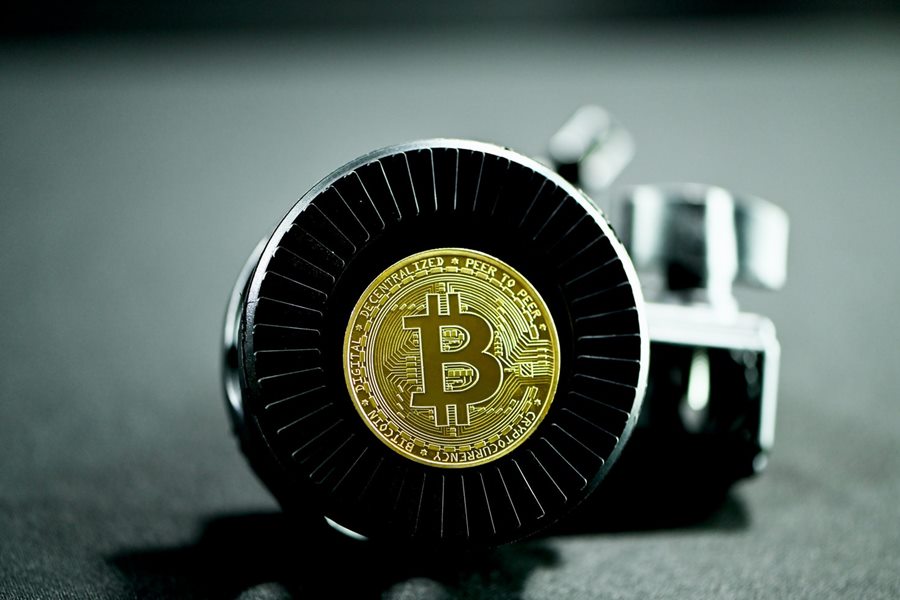Trading items online using a global currency sounds like a way to streamline business without the complexities associated with national currencies. While Bitcoin is the most successful currency on the market today, any new frontier is bound to encounter some difficulties. Despite Bitcoin’s recent popularity, investing in cryptocurrency has some significant dangers. Consider how many large firms — Tesla, for example — are investing in Bitcoin. The “original cryptocurrency” has been a big issue in the financial world for some time now, but the economic instability caused by the Covid-19 outbreak has accelerated Bitcoin discussion.
Regulation
According to Simon Yu, co-founder, and CEO of crypto cashback startup StormX, China’s initiatives should be regarded positively for Bitcoin and other cryptocurrencies such as ether, as they will result in increased decentralization. He added that “overregulation” of cryptocurrency in the United States could be an issue.
“As a government, the United States has far too many departments regulating cryptocurrency from disparate perspectives – is crypto security? Is it a commodity? What is a property? As Yu stated. “At the moment, the United States has not figured out how to govern the business correctly, which frequently results in decisions that make it impossible for crypto to operate.” Janet Yellen, the US Treasury Secretary, and other officials have recently warned against cryptocurrency for illegal transactions.
Last year, former President Donald Trump’s administration proposed an anti-money laundering rule that would force anyone who stores cryptocurrency in a private digital wallet to submit to identity checks if they conduct transactions worth more than $3,000.
Market Volatility
Bitcoin’s price is continually fluctuating. One Bitcoin was valued at $6,461.01 on November 6, 2018. With such an unpredictable market, there is no way to forecast whether you will earn a profit. To avoid suffering a catastrophic loss, keep a close check on the market.
Not Real Money
Additionally, Bitcoin is hazardous because it is a tradable asset that is not backed by anything. Bitcoin has value solely because those who trade it believe it does. There are no governments or regulatory agencies that aid in the preservation of Bitcoin’s value. All of the matter is essentially “fabricated.” “for want of a more appropriate term. In other words, as uber-investor Warren Buffett described it, “[Bitcoin] has no inherent value.” As a result, it is a hazardous investment if the market ever determines that it is no longer helpful.
Concerns about the Environment
Concerns about bitcoin’s environmental impact could be another significant headwind for the cryptocurrency. Bitcoin mining equipment consumes a substantial amount of electricity, and bitcoin’s energy usage has increased significantly over the years in lockstep with its price. While Bitcoin’s detractors have long warned of the cryptocurrency’s massive carbon footprint, Tesla CEO Elon Musk reintroduced the topic this year.
Musk’s electric car company startled Bitcoin enthusiasts and doubters this year when it purchased $1.5 billion in the digital currency and began taking it as a form of payment. However, he roiled crypto markets after suspending Bitcoin payments due to the currency’s “insane” energy consumption and reliance on fossil fuels. This creates some concerns for asset managers under increasing pressure to invest exclusively in socially conscious assets.
Cybertheft
Because cryptocurrency is a technology-based investment, it is susceptible to cyberattacks. Hacking is a significant danger, as there is currently no means to recover lost or stolen Bitcoins. Conduct thorough research on your Bitcoin wallets to ensure you’re selecting the most dependable alternative.
Not Disaster-Resistant
One of the most compelling reasons to invest in Bitcoin during and after the pandemic is that it acts as an excellent hedge against fiat currency, national banks, and even the entire financial system if they fail. The pandemic has made these possibilities more possible than ever, but believing that Bitcoin can save you in these circumstances is almost certainly untrue.
If fiat currencies or traditional financial systems ever fail, governments and central banks will respond by vaulting physical assets such as gold, not by issuing Bitcoin. Additionally, how would you access your Bitcoin if the collapse progressed further and destroyed technology, electricity systems, or perhaps the entire internet? Consider this when you hear that Bitcoin is the best method to safeguard against future crises.
Scrutiny of Stablecoins
Tether asserts that each of its tokens is backed 1:1 by US dollars maintained in reserve to keep a stable price. Tether is frequently used by cryptocurrency investors as a substitute for the US dollar when purchasing cryptocurrencies.



